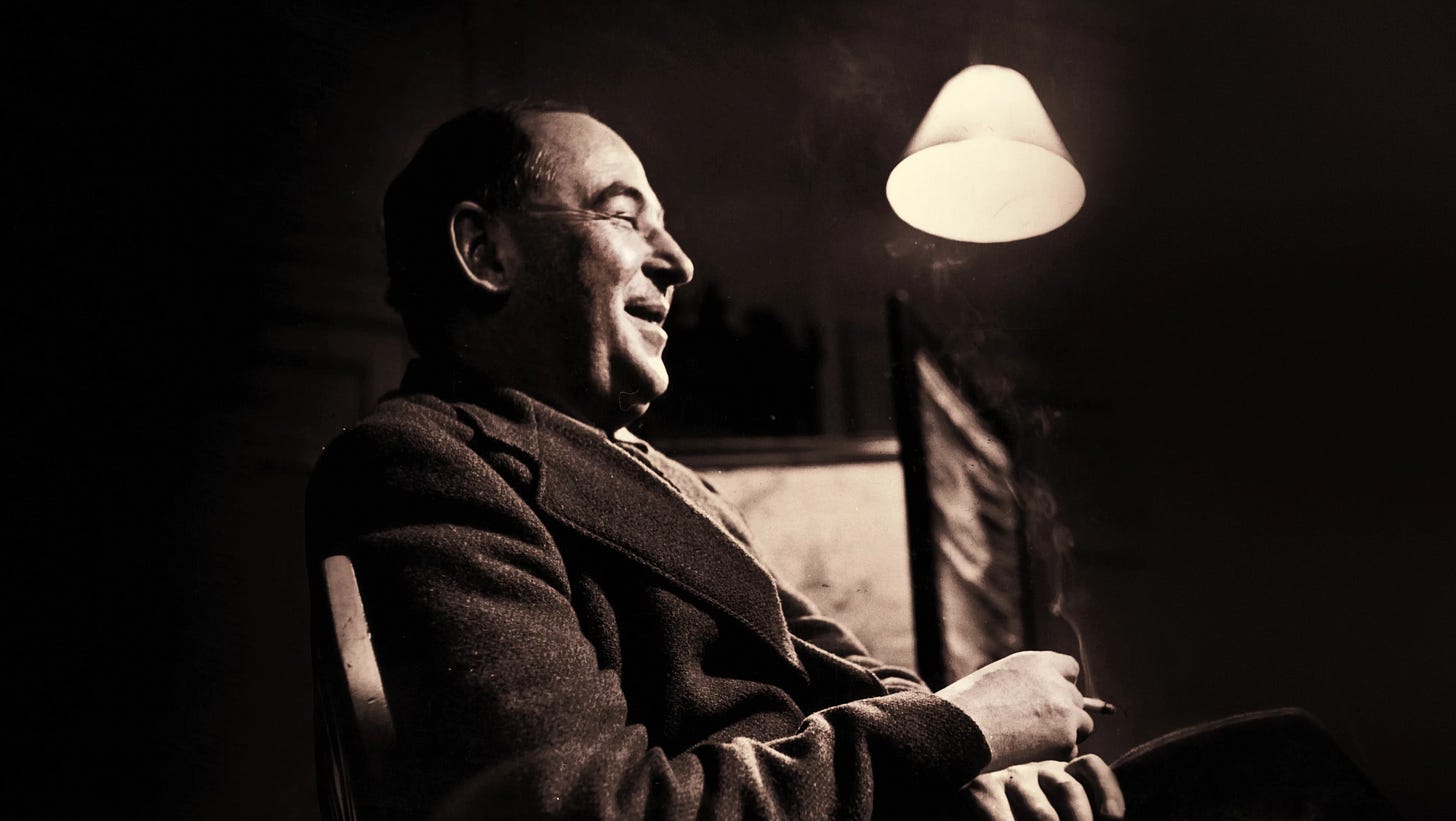Issue #16 — CS Lewis and Transformation Conversations
hope this sheds added light on TCs
In our last session of PILGRIM, we reviewed Chapter 4 — Engaging in Transformation Conversations. This chapter can make it seem like these are rigid conversations that only happen in specific contexts. If it comes across that way, I pray for you to transcend what’s written because TC’s come in many forms for many purposes!
Recently, I have read a couple of quotes from CS Lewis that strike me as transformation conversations about changing beliefs.
With clarity, authenticity, and passion, he will lay out how he used to believe one thing, but now believes something different based on God’s revelation.
Let me give you a few examples:
When Lewis was instructed that he ought to “hate the sin, but love the sinner,” he resisted the idea. But years later, he shared this:
“For a long time I used to think this is a silly, straw-splitting distinction: how could you hate what a man did and not hate the man? But years later it occurred to me that there was one man to whom I had been doing this all my life—namely myself.”
That’s a two-sentence transformation conversation! I thought one way, but through growing awareness, God showed me another way to understand this.
Here’s a longer one in which he contemplates a strange thing about the psalms: at their core, they seem to be nothing more than God instructing people to praise God. That seems selfish and wrong.
But the most obvious fact about praise—whether of God or anything—strangely escaped me. I thought of it in terms of compliment, approval, or the giving of honour. I had never noticed that all enjoyment spontaneously overflows into praise unless (sometimes even if) shyness or the fear of boring others is deliberately brought in to check it. The world rings with praise—lovers praising their mistresses, readers praising their favourite poet, walkers praising the countryside, players praising their favourite game—praise of weather, wines, dishes, actors, motors, horses, colleges, countries, historical personages, children, flowers, mountains, rare stamps, rare beetles, even sometimes politicians or scholars. I had not noticed how the humblest, and at the same time most balanced and capacious, minds, praised most, while the cranks, misfits, and malcontents praise least. The good critics found something to praise in many imperfect works; the bad ones continually narrowed the list of books we might be allowed to read …
… I had not noticed either that just as men spontaneously praise whatever they value, so they spontaneously urge us to join them in praising it: “Isn’t she lovely? Wasn’t it glorious? Don’t you think that magnificent?” The Psalmists, in telling everyone to praise God, are doing what all men do when they speak of what they care about.
I really appreciate Lewis’ capacity to share his transformational journey. He is able to capture what it looks like to gain awareness and take action on the newfound awareness. (You get the sense that he praises God more than ever before!)
In Kingdom Journey, we hold a belief that all followers of Jesus should be able to speak in similar ways because talking about transformation is a core aspect of transformation. It keeps the transformation alive in us while also touching, moving, and inspiring others.
If we’re looking for further help in this cause, we can use the quotes from CS Lewis as a template:
I used to think that ______.
But then God showed me ______.
Now, I hold a belief that _______.
For instance, I used to think that Jesus was a really bad model for manhood—he just seemed so meek and weak. But I realized the problem wasn’t with Jesus, but with me. I let others define Jesus for me. When I actually read the Gospels, I realized that Jesus was amazingly strong. In the face of tremendous pressure to give up on his Father-given responsibility, he was able to stay on course, all while trying to recruit others to get on board. In my own life, that kind of work can be very difficult. I can be such a coward and people-pleaser, but having seen Jesus in a new light, I am asking God and others to help me be as secure as Jesus in my identity. That way, I’m not pulled here and there by the petulant demands of others. I still need a lot of help and a lot of insight, but I’m on that journey toward a fuller personhood.
.
So yeah, that’s what I see in Lewis. Hope that helps in some way!
.



